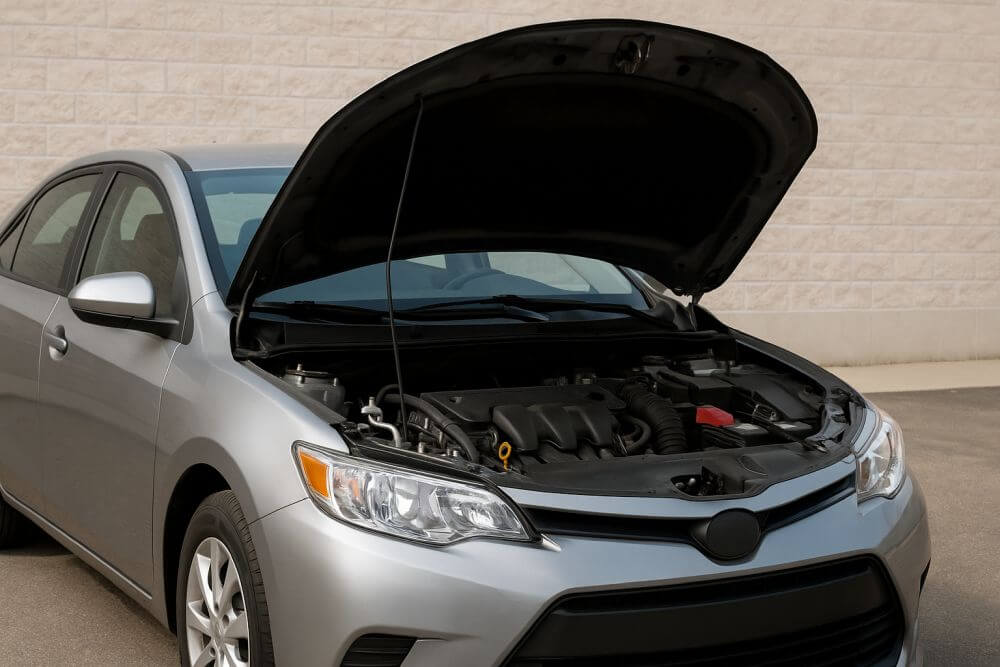Not every car that looks good on the outside is problem-free under the hood. Some vehicles are repeatedly repaired for serious defects—yet still fail to function properly. These are known as lemons, and they can cost unsuspecting buyers thousands in repairs and frustration.

A lemon check helps you avoid buying one of these faulty vehicles. In this guide, you’ll learn what a lemon vehicle is, how lemon laws protect you, and how to check if a used car has been flagged as a lemon before you buy.
The Problem: Some Cars Are Just Bad from the Start
Imagine buying a used car that seems like a great deal—only to find out later it was returned to the manufacturer after multiple failed repairs. You’re left with:
- Recurring mechanical issues
- No factory warranty
- No easy way to return it
- Endless visits to the mechanic
These “lemon” vehicles can hide in plain sight, especially in the used car market. They’re often resold after being repurchased or reacquired under state lemon laws.
Why It Matters: Hidden Lemons Still Get Sold
Used lemon vehicles don’t always come with a warning label. While many are branded as “lemon law buybacks” or “manufacturer repurchases,” that’s not always the case. Some get clean titles, especially if they’re resold in states with weaker disclosure laws.
Buying a lemon can result in:
- Safety issues from unresolved defects
- Poor resale value
- Voided warranties
- Limited legal recourse
Without a lemon check, you might not know a car’s troubled past until it’s too late.
The Solution: Run a Lemon Check Before You Buy
A lemon check looks for manufacturer buybacks or title brands that indicate the vehicle was labeled a lemon under state or federal law.
A proper lemon check will reveal:
- Manufacturer Buyback Status – Was the car returned under a state lemon law?
- Title Branding – Does the title show a “lemon” or “repurchased” brand?
- Repair History – Are there repeat service issues reported?
- Odometer Readings – Signs of rollback to cover up lemon status.
- State Reporting – Some states require lemon branding on the title.
You can perform a lemon check for free using tools like VinCheck.info’s Free Vehicle History Report, which pulls data from NMVTIS and other trusted sources.
What Qualifies as a Lemon Vehicle?
Each state defines lemons a little differently, but most follow similar rules. A vehicle is usually considered a lemon if:
- It has a significant defect that impairs use, value, or safety
- The issue occurs within the warranty period
- The problem can’t be fixed after a reasonable number of repair attempts
- Or the car is out of service for an extended time due to repairs
Examples of lemon-worthy issues:
- Transmission failures
- Persistent engine overheating
- Electrical system malfunctions
- Brake or steering defects
- Water leaks or mold
If the manufacturer repurchases the vehicle, it may receive a lemon title brand depending on the state.
How Lemon Laws Work by State
All 50 U.S. states have lemon laws—but they vary in terms of what’s covered and how buybacks are handled.
Here’s what differs from state to state:
- Time or mileage limits (e.g., within the first 18 months or 18,000 miles)
- Number of failed repair attempts before qualifying
- Types of defects covered
- Disclosure requirements for resale of lemon buybacks
Some states require clear lemon branding on the title. Others only require disclosure on paper or via the dealer—not the title.
That’s why a lemon check is crucial—even if the title looks clean.
How to Do a Lemon Check (Step-by-Step)
- Find the VIN (Vehicle Identification Number)
Look on the dashboard near the windshield, driver’s door frame, or registration papers. - Use a Free VIN Tool
Go to VinCheck.info and enter the VIN. Select the full vehicle history report. - Check for Key Red Flags
Look for:- “Manufacturer Buyback” or “Lemon” under title status
- Repeated repair records for the same problem
- State title branding (e.g., “Lemon Law,” “Reacquired”)
- Service records that show unresolved defects
- Verify the Buyback Disclosure
If the car was labeled a lemon, the dealer is usually required to disclose this. Ask for it in writing. - Cross-check With State DMV if Needed
Some states allow you to verify branding status directly via their DMV database.
Real-World Signs You Might Be Looking at a Lemon
Even without a history report, look out for these warning signs when inspecting a used car:
- New paint or bodywork covering damage
- Unusual noises or vibrations during test drives
- Strong odors, which could mean past water damage or mold
- Missing service records or reluctant sellers
- Too-good-to-be-true pricing
If anything feels off, run a lemon check before moving forward.
Final Thoughts: Protect Yourself from Lemon Trouble
A lemon check is your first line of defense against buying a problematic used car. While lemon law protections exist, they only help if you know how to spot the warning signs early.
By using the free VIN tools at VinCheck.info, you can instantly check for lemon branding, title issues, and repair history—no guesswork required.
🔗 Related Resources:
- Free VIN Decoder – What Your VIN Reveals
- Car Value by VIN – Is the Price Too Good to Be True?
- Salvage Title vs Lemon Title – Know the Difference
- Vehicle History Report – What’s Included?
Ready to run your free lemon check?
👉 Start with a Free VIN Lookup at VinCheck.info – no credit card needed.